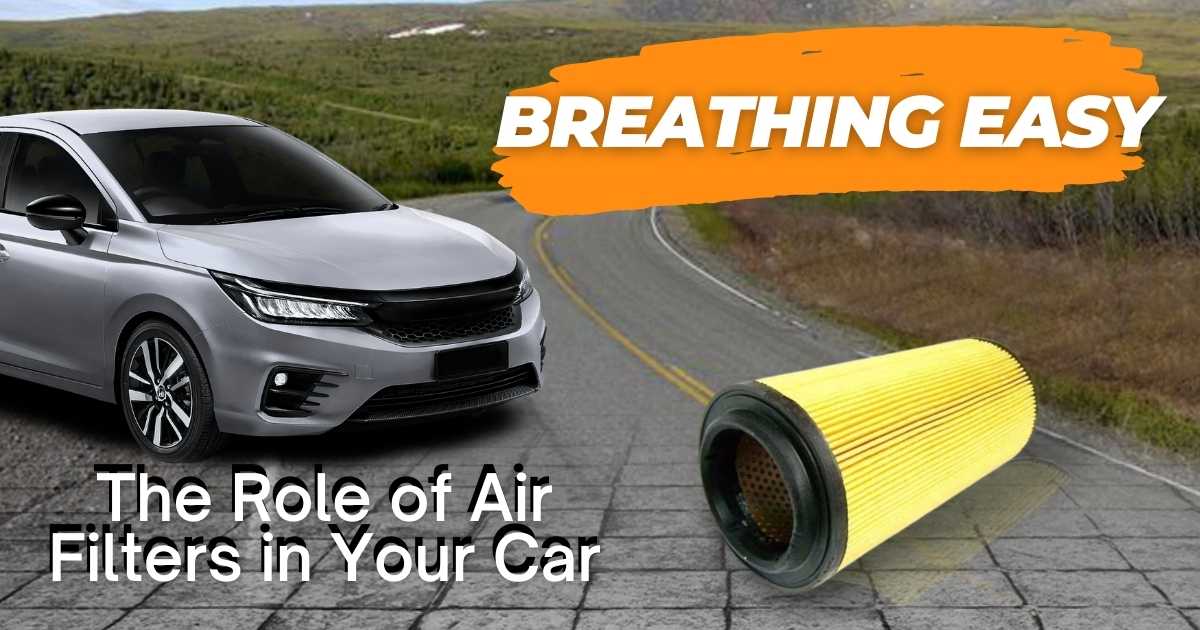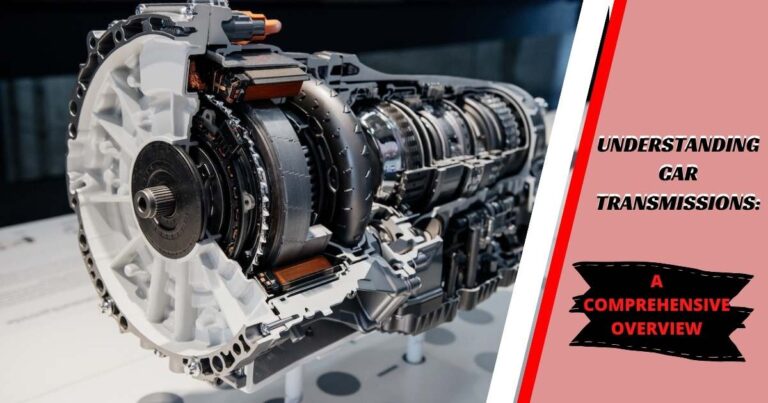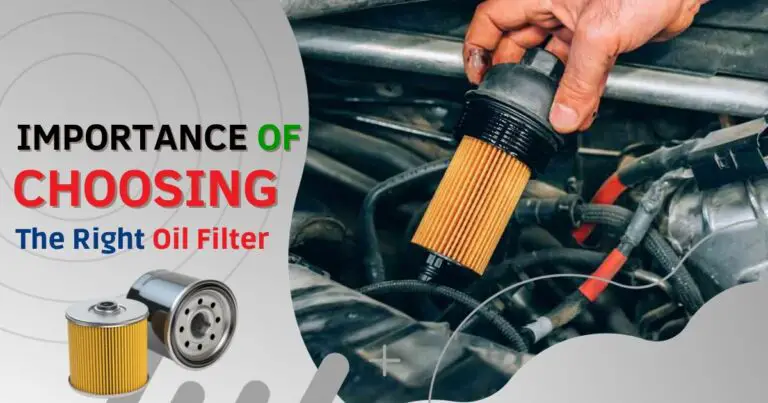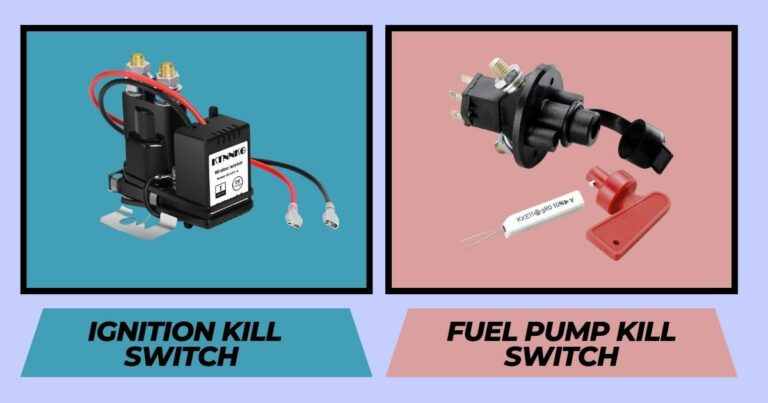Breathing Easy: The Role of Air Filters in Your Car Health
Have you ever considered the quality of air you breathe inside your car? In the hustle and bustle of daily life, it’s easy to overlook the importance of something as seemingly insignificant as air filters. Just because you can’t see your car air filters, doesn’t mean they’re not important.
You may not think about air filters very often, but they play a crucial role in ensuring clean air circulation within your vehicle. From trapping dust and pollutants to safeguarding your health and optimizing engine performance, these components keep you breathing easy on the road.
What are Air Filters?
Air filters are devices designed to remove airborne contaminants from entering the engine as well as the ventilation system. Their primary function is to prevent dust, pollen, pollutants, and other harmful particles from entering the engine or the passenger cabin.
Air filters are vital for maintaining air quality inside the vehicle and protecting both passengers and engine components from harmful contaminants. There are typically two main types of air filters found in vehicles;
Cabin Air Filters
Cabin air filters are typically located along the air intake pathway to allow them to filter the incoming air before it reaches the passenger cabin. These filters help remove dust, pollen, smoke, and other pollutants, ensuring clean and fresh air for the occupants. These filters function similarly to air filters found in home HVAC systems, but their purpose is to enhance the air quality, specifically within the confined space of the vehicle interior.
Engine Air Filters
Engine air filters are positioned along the air intake pathway, between the outside air intake and the engine’s intake manifold. These filters serve as barriers between the outside environment and the internal components of the engine. Their primary function is to prevent dirt, dust, debris, and other contaminants from reaching the engine, thereby safeguarding its performance and longevity.

How Air Filters Trap Contaminants
Air filters employ a combination of physical and chemical mechanisms to trap contaminants and maintain air quality. However, physical filtration is the primary mechanism by which air filters trap air contaminants.
Physical filtration involves the use of a porous material, typically made of paper, foam, cotton, or synthetic fibers, with tiny gaps or spaces between the fibers. As air passes through the filter media, larger particles such as dust, pollen, and debris are physically obstructed and captured by these fibers.
Modern air filters utilize electrostatic charges to attract and capture particles with opposite charges to enhance filtration efficiency. As air flows through the filter, charged particles are drawn to the oppositely charged fibers, adhering to them and becoming trapped. This method is often effective in trapping smaller contaminants like fine dust and allergens, which may have escaped through physical filtration alone.
Some air filters, particularly those used in cabin air filtration systems, incorporate activated carbon as an additional filtration layer. Activated carbon is highly porous and possesses a large surface area, allowing it to adsorb and trap gaseous pollutants, odors, and volatile organic compounds from the air.
In addition to physical and electrostatic filtration, air filters may utilize chemical filtration mechanisms to remove stubborn contaminants. For example, some filters are impregnated with chemical substances like potassium permanganate or zeolite to help neutralize odors, harmful gases, and volatile organic compounds through chemical reactions.
Furthermore, high-efficiency air filters employ multiple filtration stages to achieve comprehensive contaminant removal. These filters may consist of several layers or compartments, each designed to target specific types and sizes of contaminants, thus ensuring thorough filtration of the incoming air.
Types of Air Filters
Paper Air Filters
Paper air filters, also known as cellulose filters, are among the most common types of air filters found in vehicles. These filters are made of pleated paper material designed to trap airborne particles and contaminants from entering the engine’s intake system. This design allows for the passage of clean air while trapping contaminants, thereby ensuring optimal engine performance.
Paper air filters are typically disposable and require regular replacement according to the manufacturer’s recommendation. Luckily, these filters are often affordable and easy to replace. This makes routine maintenance convenient for vehicle owners.
Foam Air Filters
Foam air filters are a type of air filter commonly used in vehicles, especially in high-performance or off-road applications. These filters are constructed using porous foam material, typically polyurethane foam, which offers excellent filtration capabilities while withstanding rugged conditions.
Foam filters are known for their durability and resistance to moisture, making them ideal for dusty and wet conditions. Furthermore, they are often washable and can be reused multiple times. That’s not all. You can cut and shape foam air filters to fit different types of air filter housing, which provides flexibility in installation and compatibility with a wide range of vehicles.
Cotton Air Filters
Cotton air filters, also known as gauze filters, are constructed using layers of cotton fabric or gauze. These filters are designed to provide superior filtration efficiency and airflow, making them popular among performance enthusiasts and high-performance vehicles.
The dense weave of the cotton material ensures thorough filtration, which provides clean air for the engine while maintaining optimal airflow. Much like their foam counterparts, cotton filters are often washable and reusable, allowing for extended use and reduced environmental impact.
Signs of a Dirty Air Filter
Clean air filters are crucial for maintaining both vehicle performance and passenger well-being. If the air filters are dirty or clogged, they can compromise your vehicle’s performance and lead to long-term financial implications. Here are some signs that your air filter may be dirty and in need of replacement;
Reduced Airflow
One of the most noticeable signs of a dirty or clogged air filter is reduced airflow from the HVAC system. A clogged air filter restricts the flow of air into the cabin, resulting in weaker air circulation through the vents. The reduced airflow can lead to discomfort for passengers, especially during hot or cold weather, as the HVAC system struggles to maintain the desired temperature inside the vehicle.
Decreased Fuel Efficiency
A dirty air filter can adversely affect the engine’s air-to-fuel ratio, leading to decreased fuel efficiency. A clogged filter makes the engine receives insufficient air, and it compensates by burning more fuel to maintain performance, resulting in higher fuel consumption. Monitoring changes in fuel efficiency can help identify potential air filter issues and prompt the need for inspection and replacement.
Engine Misfires or Stalling
A dirty air filter is bound to disrupt the combustion process, leading to engine misfires or stalling. When the engine receives inadequate air supply, it may struggle to ignite the fuel mixture properly, resulting in intermittent sputtering, hesitation, or even complete engine shutdown. Engine misfires or stalling episodes are often a sign of a severely clogged air filter that requires immediate attention to prevent further damage to the engine.
Unusual Engine Sounds
A dirty air filter can cause unusual engine sounds, such as wheezing, hissing, or popping noises. These sounds mainly occur as a result of airflow restriction or turbulence caused by the clogged filter, which can affect the engine’s performance.
Visible Dirt or Debris on the Filter
Visual inspection of the air filter can provide direct evidence of its condition. If the filter appears visibly dirty, clogged, or coated with dust and debris, it is a clear indication that it needs to be replaced. Luckily, checking the air filter during routine maintenance intervals allows for timely replacement and ensures continuous protection for the engine and HVAC system.
Foul Odors
A dirty air filter can lead to the accumulation of mold, mildew, and bacteria within the HVAC system. As air passes through the filter, these contaminants can emit unpleasant odors, which may be noticeable inside the vehicle. Foul odors emanating from the vents often indicate the need for air filter replacement and thorough cleaning of the HVAC system.
Final Thought
Investing in quality air filters is not just beneficial for your car’s health but also for your own well-being. By choosing the right air filters and maintaining them diligently, you can ensure a cleaner and more enjoyable driving experience for years to come. Remember, clean air means better performance and a healthier ride for you and your passengers.







